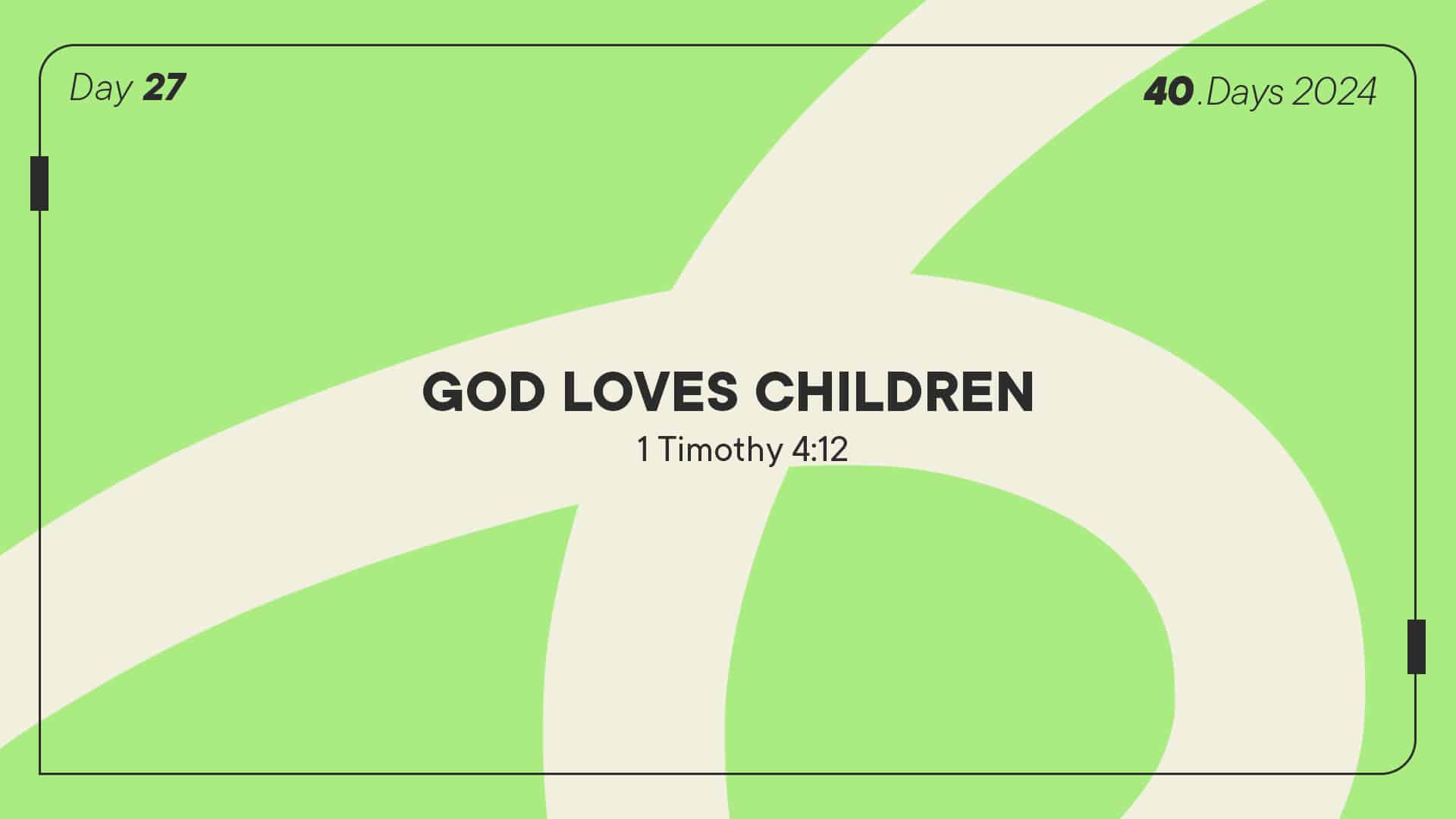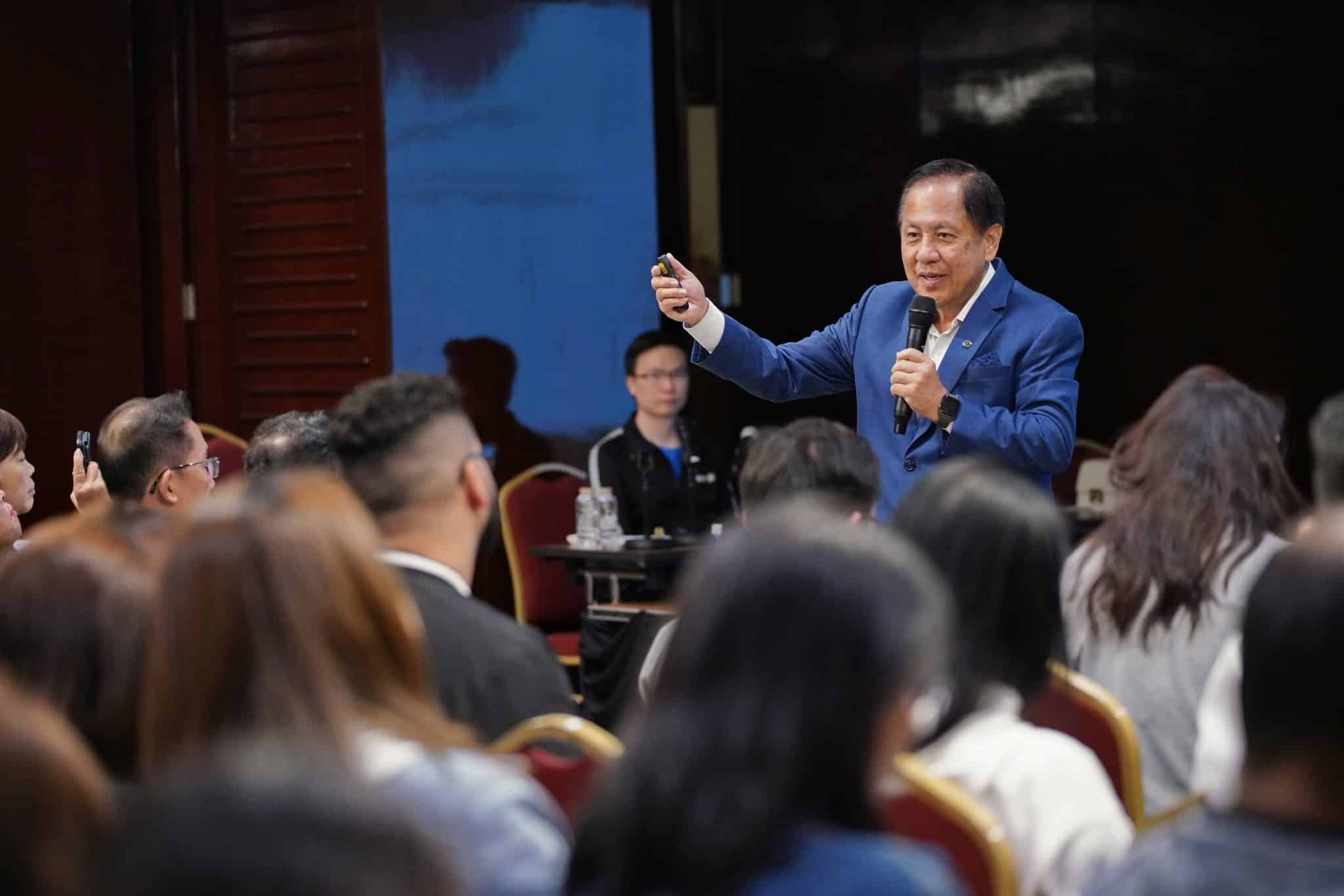Lament! President of NCCS exhorts leaders at Pastors Summit 2021
by Tan Huey Ying // January 15, 2021, 7:23 pm
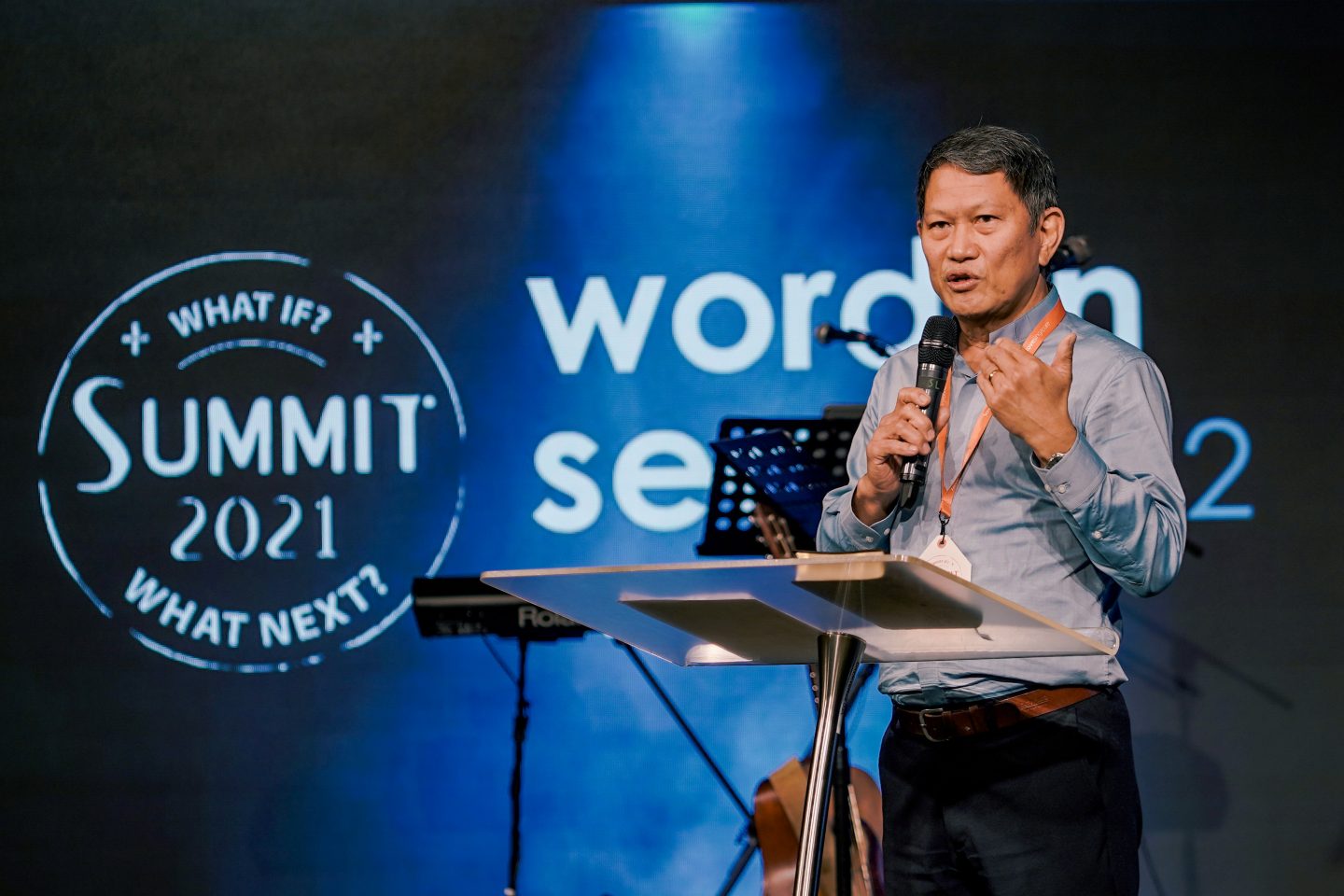
“We always gravitate towards hesed. We want the shortcuts to God’s mercy,” says Rev Keith Lai. "But there is no easy way. The trek through suffering and pain whilst grappling with the issue of God’s sovereignty is necessary." All photos by Ang Weiming.
“We must have clarity for 2021” is the common refrain amongst leaders of any sort.
“Many of us cannot live with uncertainty – cannot live without clarity,” Reverend Keith Lai pointed out to pastors and leaders from 107 churches at the LoveSingapore Pastor’s Summit 2021.
“Even Mother Teresa said that she had never had clarity, only trust.”
“But there are times in the Christian life where there is no clarity,” said Rev Lai, referring to both the current season of worldwide crises, as well as the personal suffering endured by many.
Even Mother Teresa, whose life seemed to be the epitome of clarity amidst extreme suffering, said that she had never had clarity, only trust, said Rev Lai.
“When we learn to face suffering as it is, are we authentic in our expression of grief and sorrow? Or do we shut it down and say, ‘Snap out of it! We’re Christians, we’re conquerors! Victorious!’
Rev Lai urged the audience of fellow pastors, leaders and ministry workers: “This is where we need to pick up this whole discipline of lament seriously.”
The road we run from
But the path of lament is the road less travelled, said Rev Lai, the Synod moderator of the Presbyterian Church in Singapore and President of the National Council of Churches of Singapore (NCCS).
“For many of us here, it’s not just the road less travelled, it’s the one we run away from at all costs.”
Some do not lament because they are busy and distracted, he said. “Trying to fix the problem. Trying to get everything back in order. Trying to get the church back on track. We have no time to pause. No time to slow down, reflect.”
“For many of us here, lament is not just the road less travelled, it’s the one we run away from at all costs.”
Others dare not lament, Rev Lai pointed out, calling out the “façade of stoicism” arising from unhealthy fears that he sees amongst leaders and pastors. They say determinedly in the face of suffering: “This will not bring me down, this will not make me cry.”
“We are afraid to let our members see the pastor as he is: Human. Broken. Vulnerable.
“Why? Because we’re supposed to be on top of everything, to be seen as in control, that everything is well-taken care of.”
And it is a misconception that is too frequently reinforced.
Rev Lai shared how a couple who served as leaders in a local church was asked to step down from leadership and leave the church after they sought counselling for marital issues.
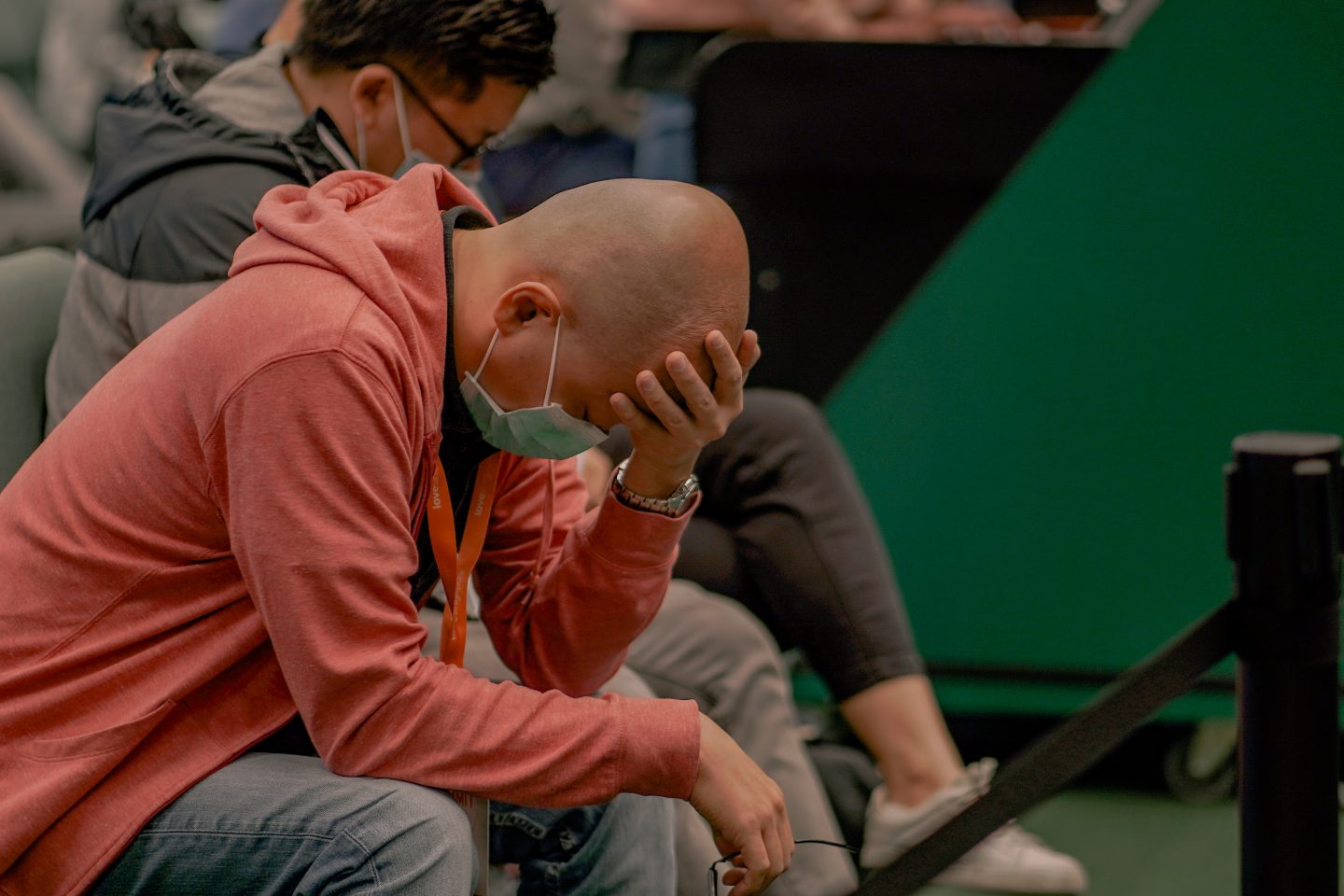
Many leaders are unaware of the need and the value of lament, Rev Lai pointed out, as he urged them to “pick up this whole discipline of lament seriously”.
When this couple was asked what happened, they said: “We were no longer the vision of maturity and happy Christian confidence that we once were. We no longer fit the standard for Christian service.
“I guess Christians are not supposed to struggle.”
Have you been broken enough?
Lament was frowned upon during the Reformation, a period which preceded the birth of Protestant Christianity, said Rev Lai.
At that time, questioning God was regarded as a terrible sin. “They were so embarrassed by the book of Job that they felt it shouldn’t even be in the Bible!”
“Our church buildings show our theology – there is no room for lament.”
Complaining and lamenting was thought of as “unbecoming” for a spiritual leader, he said. “Top dogs, not underdogs! Triumphant! Victorious! What kind of pastor were you if you seemed to be falling apart and crying more and more?”
Even today, that sentiment persists with many leaders who, unaware of the need and the value of lament, inadvertently propagate what Rev Lai calls “superficial triumphalism”.
“We give the idea that coming to church is always a joy – always have laughter, always victorious. Our church buildings show our theology – there is no room for lament.”
Churches should set aside rooms not just for prayer but for lament, he said wryly, with a sign at the door: For lament. Do not disturb.
“And it should be soundproof!”
“You want to be the one that God esteems?” he challenged.
“Have you been broken enough?” (Psalm 51:17)
Bigger than your doubts
“Superficial triumphalism is the assumption that trust in God precludes struggle. Faith, we assume, erases doubt,” said Rev Lai.
“The fact that there is doubt, shows that there is faith.”
Not at all, he emphasised.
Acclaimed author Philip Yancey famously says his doubts have kept his faith going all these years. So many of his books – like Where is God When it Hurts and What Good is God – came out of his struggles with doubt, Rev Lai pressed.
Even the Psalms – more than 42 of them in lament – portray the “audacity” to lament, said Rev Lai. “The fact that there is doubt, shows that there is faith. If you don’t have a healthy dose of doubt, it’s very likely that you are not growing.
“Don’t be afraid of it. God is much bigger than your doubts, He can handle it.”
“It doesn’t help you to explain suffering away, it doesn’t help you to domesticate God and tame Him.”
Explaining how the prophet Jeremiah’s five poems in Lamentations are structured to climax into Lamentations 3:21-23 which speaks about the new and steadfast (hesed) love of Jehovah, Rev Lai said: “We always gravitate towards hesed. We want the shortcuts to God’s mercy.”
But there is no easy way, Rev Lai countered.
The “trek” through suffering and pain whilst grappling with the issue of God’s sovereignty is necessary.
For example, understanding of the wrath of God is the “centre of gravity” in the book of Lamentations. “I know some of us struggle to understand that,” Rev Lai acknowledged. “Grapple with it. Don’t go for an easy simple answer that takes away the sovereignty of God. There’s nothing left if you do that.
“It doesn’t help you to explain it away, it doesn’t help you to domesticate God and tame Him and make Him into a god that is your size. The poet never exonerates and excuses God,” Rev Lai stated.
Hidden hope of lament
Rev Lai describes the “beautiful Hebrew poetry” of Lamentations: After the climax in Lamentations 3:23, the theme of affliction repeats itself and Jeremiah ends the book with another question (Lamentations 5:20). There is no neat resolution.
“If you’ve been a pastor long enough, you have more questions than answers,” reckoned Rev Lai, who says he has “less answers” and “more mysteries” after pastoring for over 40 years.
“Life is not a problem to be solved, but a mystery to be lived.
“With God there are mysteries, but no mistakes,” he reiterated. “The earlier you and I come to be content with this truth – that we have no clue or answers, even as a senior pastors – the better we are.
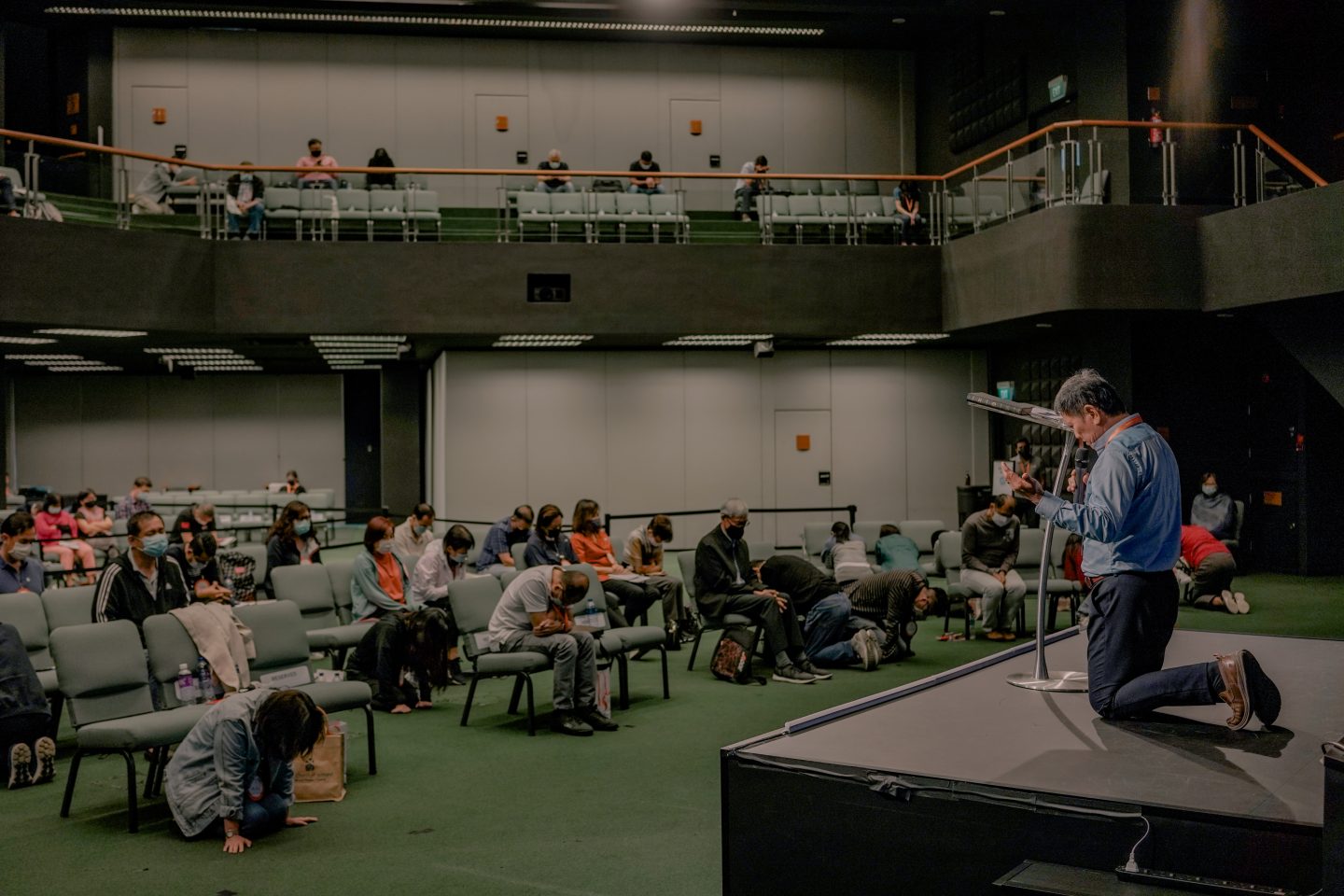
“The only way that you and I can lament safely and holistically, is if we are rooted in the saving grace of Christ,” said Rev Lai, as he led the audience in prayer.
“Someone said, ‘Lamentations is a battle cry against God that paradoxically voices a heart of desire and an ironic faith in His goodness.’
“The Christian life is marked by painful struggles,” Rev Lai empathised. “And sometimes, for some people, the suffering can be so prolonged, and so unending, there is no light at the end of the tunnel … What do you do?
“The poet says it was ‘good to wait on God’ (Lamentations 3:26). His circumstances have not changed, but his perspectives changed.
“Life is not a problem to be solved, but a mystery to be lived.”
“That, my friends, is the hidden hope of lament.”
And in such a reality where there is no quick solution to suffering, are we able to reconcile the fact that hope comes with despair? asked Rev Lai, challenging the common assumption that hope removes despair.
“The path of lament brings the freedom to be authentic disciples, sorrowful, yet always rejoicing. (2 Corinthians 6:10)
“There is sorrow and rejoicing: Rejoicing has the upper hand. But never forgetting that there is still the sorrow deep within.
“That’s where we teach the proper theology of lament, teach them how to cry their hearts out to God.
“And not feel condemned,” he added. “I think that’s very important.”
Sorrowful, yet always rejoicing
He shared how an American professor of church growth and evangelism, Soong-Chan Rah, started his new church plant by preaching from Lamentations in the first six weeks of the new church.
“Seemingly illogical choice! Which church growth pastor or planter would start with these messages on Lamentations?” Rev Lai asked.
“Not very seeker friendly!” he quipped.
But Soong-Chan pointed out two reasons: First, in his American context, there was this very high tone of triumphalism: The church is here to fix the problems of the world, we are the answer to every ill and pain.
“We stand before Him, justified, righteous, and forgiven. That’s why we can lament.”
Second, he was planting a church in an urban city facing a lot of suffering, pain and injustice. He noticed the younger generation was disgruntled, disillusioned with the baby boomers’ message and their model of triumphalism.
Quoting from Prophetic Lament which Soong-Chan wrote, Rev Lai said:
“To only have a theology of celebration at the cost of a theology of suffering is incomplete. The intersection of the two threads provides the opportunity to engage in the fullness of the gospel message.
“Lament and praise must go hand in hand.”
Rev Lai reminded his audience. “If we portray ourselves as always having the victory and without the theology of suffering – we will not have the fullness of the Gospel. It will be truncated, distorted.
“Christianity has the most fully nuanced theology of suffering of any other philosophy. The most complete understanding of what sin and suffering is – and this is what we offer to the world.
“We stand before Him, justified, righteous, and forgiven. That’s why we can lament. If we lament without a grounding in the hesed, the steadfast mercy of God, we will be in trouble.”
“The only way that you and I can lament safely and holistically, is if we are rooted in the saving grace of Christ.
FOR MORE NEWS ON PASTORS’ SUMMIT 2021, READ:
“A spiritual leader must leave no brokenness unhealed”: Pastor Daniel Foo
Lament! President of NCCS exhorts leaders at Pastors Summit 2021
We are an independent, non-profit organisation that relies on the generosity of our readers, such as yourself, to continue serving the kingdom. Every dollar donated goes directly back into our editorial coverage.
Would you consider partnering with us in our kingdom work by supporting us financially, either as a one-off donation, or a recurring pledge?
Support Salt&Light
